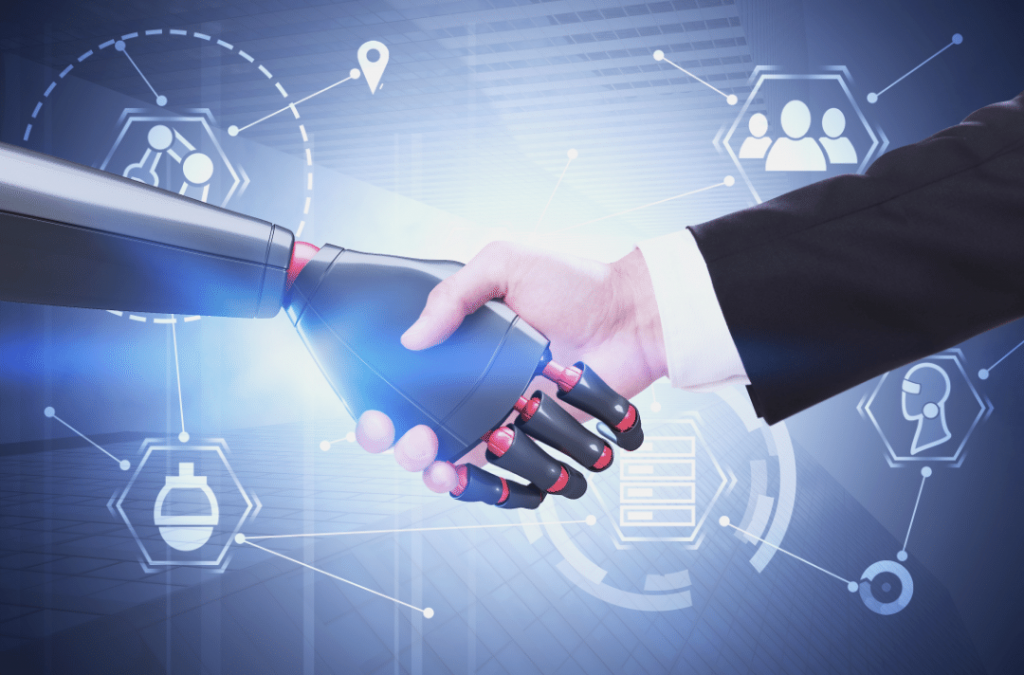Education & Career Trends: October 28, 2022
Curated by the Knowledge Team of ICS Career GPS

Content Credit:
- Article by Gautam Mahajan, President, Customer Value Foundation. Published on customervaluefoundation.wordpress.com. Original article link.
AI increases efficiency, reduces error and risk, has unbiased decisions and is inhuman. Do we, for example, want biased decisions? Do we want human decisions or just mere machine decisions? What tasks can we leave safely to AI and which tasks must require human intervention? How can we take advantage of human strengths and machine strengths?
Humans have limits in their machine-type work. Should AI be used to only help here, or should humans help AI with interventions where consciousness, psychological thinking and awareness are necessary? Can AI become accountable?
I(Mr. Mahajan) think we need to start with ‘human’ designers, and their cognizance of the dangers of AI, and human limitations. Only ‘smart’ humans can understand and design smart machines, and human-like machines that can create value beyond mechanical and rote value. Can humans think the way AI thinks or could think?
Human Intelligence vs Artificial Intelligence:
Artificial intelligence by definition is not real intelligence, it has limitations. This has been recognised for years by leaders, and more work is being done in this area. Many humans do not understand that AI systems could be smarter than humans in logic and systemic thinking.
Much of this started with Guilford in the 1950s when he said creative thought depends on convergent thinking and divergent thinking.
- Convergent thinking is the ability to answer questions correctly and is predominantly a display of memory and logic.
- Divergent thinking is the ability to generate many potential answers from a single problem or question, shows a flair for curiosity and an ability to think “outside the box.” This is a form of creativity.
Humans seem to be stronger in divergent thinking than computers who excel in convergent thinking.
However, now systems are being designed with divergent thinking capabilities. This may mean that ‘real’ intelligence is being built in. Perhaps machines can have evolutionary thinking.
For example, Tim Cook suggests that augmented reality (AR) — a technology that combines real-world objects with computer-generated ones — is more psychologically palatable than metaverse. It strikes the right balance of weird and acceptable.
Understanding the limitations:
When we use artificial intelligence, we start to realise we are not as smart as we think we are.
Sometimes when creating luxury items and selling them we have to create an attraction that is human in the buyer: liking, pride of ownership, the joy of owning etc. Our approach has to be human-centric. Can we use AI to augment our offering to improve mindful attractiveness?
Luxury items require us to create extreme value for the buyer. Connecting with communities and sharing values can be augmented by AI. Tickling the imagination and causing psychological value can also be augmented by inputs from humans and machines that can lead the seller intelligently.
Who will control the future? AI or humans?
For trustworthy systems, we must understand the AI biases, design and how it thinks. Trustworthy systems would let us do this and not misbehave. Systems need to be fair, transparent and explainable. There are many questions that can impact value creation and value destruction.
To create value for ourselves through AI, we then must have this realisation of the limitations, the stream of intelligence and consciousness and awareness that we have and the AI systems have.
We must learn where to exercise control, and put safeguards. Then and only then will we create adequate value for ourselves and reduce the risk of machine overrides.
…
Have you checked out yesterday’s blog yet?
How to Rule Our Robots
(Disclaimer: The opinions expressed in the article mentioned above are those of the author(s). They do not purport to reflect the opinions or views of ICS Career GPS or its staff.)




One Reply to “Adding Consciousness to AI Creates Value”